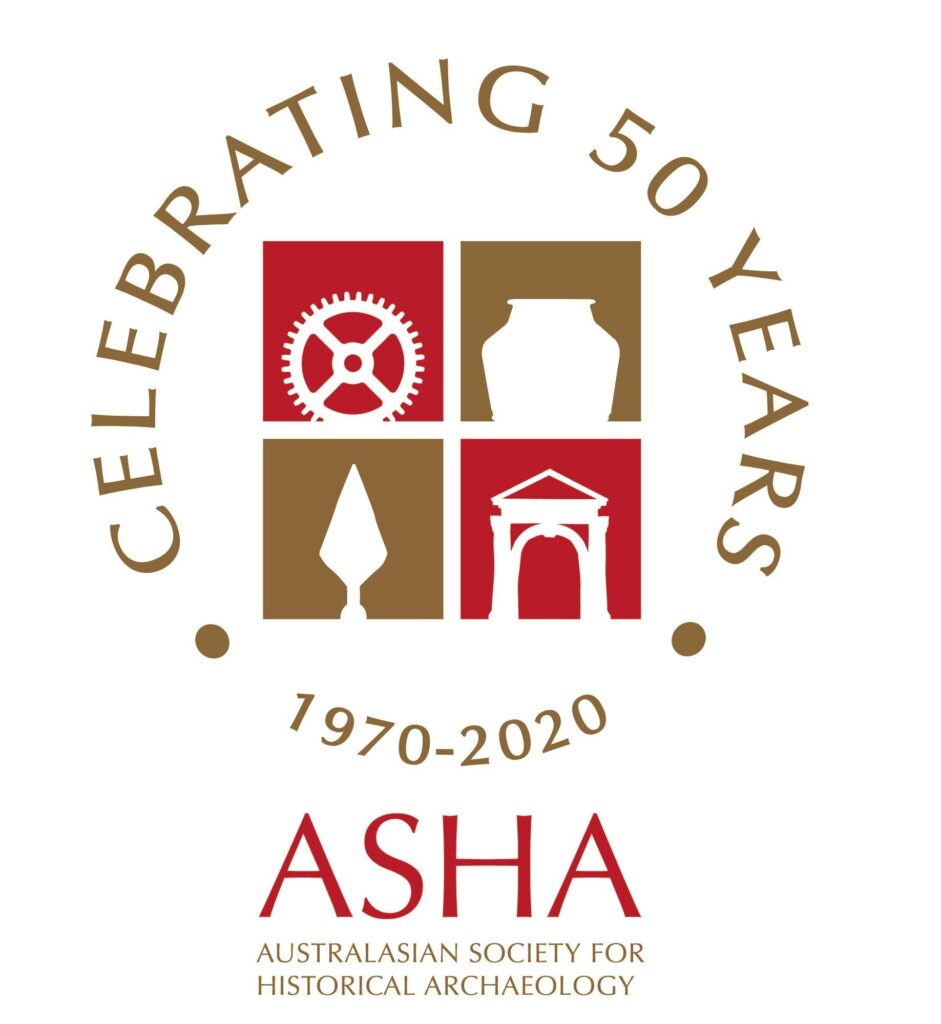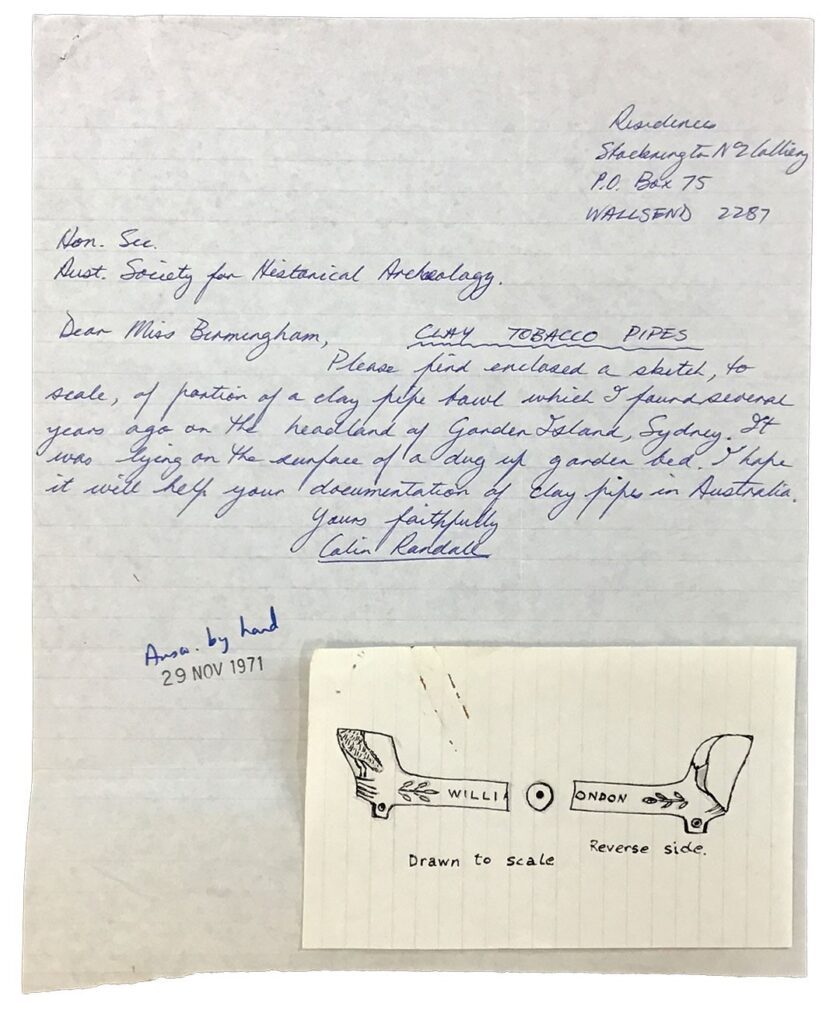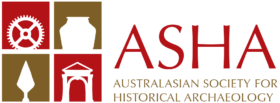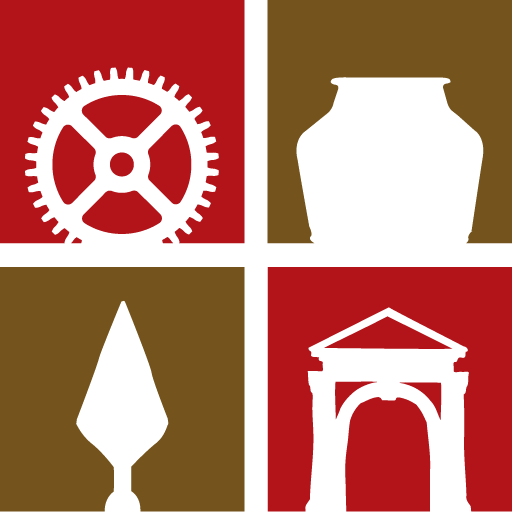
50 years ago, on the 26th November 1970, the first Australian Society for Historical Archaeology (ASHA) meeting was held at the University of Sydney. That evening, ASHA was founded to promote the study of historical archaeology in Australia. In 1991, the Society was expanded to include New Zealand and the Asia-Pacific region, and its name was changed to the Australasian Society for Historical Archaeology. To celebrate 50 years of ASHA, we will be holding a special event and hope you can join us.
The event will take place on Thursday 26 November 2020 and run for 2 hours:
- 6:30pm AEDT (3:30pm AWST, 5:30pm AEST, 6:00pm ACDT, 8:30pm NZDT)
- 8:30pm AEDT (5:30pm AWST, 7:30pm AEST, 8:00pm ACDT, 10:30pm NZDT)
Schedule for the evening
- 6:30pm – Opening – ASHA President Anita Yousif
- 6:35pm – Welcome to Country
- 6:40pm – The Establishment of ASHA – Andrew Wilson
- 6:50-7:30pm ASHA 1970 – 2020 Past Presidents
- 7:30pm – 50 Sites 50 Stories announcement – Anita Yousif
- 7:35pm – ASHA Awards winners revealed Dr Matthew Kelly
- 7:45pm – A Reminiscence – Judy Birmingham
- 8:00pm – Raise a glass to the founding of ASHA.
- Raise a glass to ASHA’s 50th Anniversary Denis Gojak
- 8:05-8:30 Display of photos celebrating historical archaeology in Australasia.
The celebration will take place at the University of Sydney with a limited number of tickets to attend and an unlimited zoom attendence. To register see link below:
https://www.eventbrite.com.au/e/asha-50th-anniversary-tickets-128587104491
On the evening Andrew Wilson, from the University of Sydney, will be talking about the establishment of ASHA. To help start the celebrations, Andrew has provided us with some great images from the Archives.
ASHA 50 Years-From the Archives
The establishment of the society and especially the early newsletters brought responses from all over Australia from people interested in historical sites and artefacts. Many had associations with existing organisations such as the National Trust or local historical societies while others saw the society as validating their personal interests or experiences and wished to contribute where they could.


